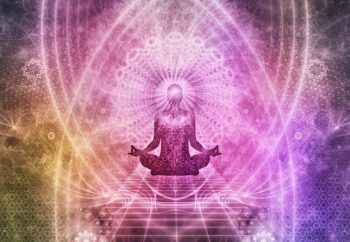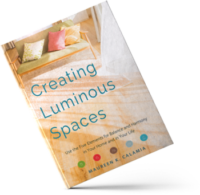By Maureen Calamia & Alex Stark
Our limited perception of reality is one of the biggest hindrances to personal and spiritual growth. Even the most enlightened of human beings throughout all of history and pre-history have had to overcome this flaw in consciousness.
To acknowledge a shift of reality, a spiritual awakening, we must sidestep this habit of viewing only the physical, linear world. And when we don’t, when we discount our spiritual experiences, we undermine our own ability to truly learn and grow. And now, more than ever, we must undergo this transformation of consciousness.
 Across millennia, many people have had profound spiritual experiences in their lives but have disregarded them. Perhaps it was a moment of revelation in nature, a profound dream, or an inner knowing. Maybe it was a guided meditation in a workshop, or a synchronicity while having a discussion with a friend. But these events were momentary and quickly forgotten.
Across millennia, many people have had profound spiritual experiences in their lives but have disregarded them. Perhaps it was a moment of revelation in nature, a profound dream, or an inner knowing. Maybe it was a guided meditation in a workshop, or a synchronicity while having a discussion with a friend. But these events were momentary and quickly forgotten.
Why do we disregard our own spiritual experience?
There are a number of reasons why this can happen:
We don’t recognize them as such.
We have been collectively brainwashed by religious and spiritual stories to expect dramatic events. The drama of the burning bush and the physicality of Archangel Gabriel’s visit to Mary are such examples. These stories seem to signal a verifiable, no-disputing-it’s-occurrence event.
Yet spiritual experiences tend to be much more subtle. They require a great deal of faith and strength to recognize them for what they are. This is, after all, about our understanding of energy and spirituality. Straightforward, linear-type occurrences are not possible in this realm of spirit.
We think that we are not enlightened enough to have them.
We may think, “Who am I? I am not worthy of this”. Others have them but I am not there yet. However, the spirit world does not label and categorize people, only humans do.
We fear change.
If we acknowledge the event as one of a spiritual nature, it requires us to think of reality with a new perspective. This can be scary. It can be ungrounding to many people. Many people crave comfort and a feeling of safety and stability. They are uncomfortable with the prospect of the unknown. For some, it requires too much of them and ignoring is easier than changing their worldview so radically.
We fear being judged.
Who among us has not had moments of going along with the group even though we think differently? In our culture, still the majority of people feel they would be perceived as a “kook” for believing in these events. Many scientists including psychologists and physicists have had to step out of a super comfort zone, risking their professional reputation, to admit they have a new world view that includes spiritual experiences. Although science is meant to embrace new ideas, unfortunately, most scientists conform to the overarching beliefs of the group.
We fear evil.
For some, the unknown and mysterious forces of true spirituality can be confused with evil. In an attempt to discredit nature spirituality, Christianity has demonized direct connection with spirit, disempowering the masses. The media has helped spread this falsehood for decades. For those with strong fundamental religious convictions, they may actually think the impetus beyond the experience was evil. Anything mysterious and they may fear of being “possessed.”
Then when we have a spiritual experience….
We tend to interfere with the process:
The Narrator – While we’re having one, we are so fascinated and excited that we may be actively narrating it, coming up with the words to describe it to others after, and this pulls us out of the experience.
The Doubter – Probably the biggest challenge is that we doubt they even had it. We think our imagination went wild or that we exaggerated it. We often totally disregard that it was one and often forget about it.
The Literal Thinker – Another major way we don’t acknowledge our experience is that we don’t ascribe any meaning or significance to the event. We don’t understand the metaphor, symbols or message and therefore, we think it was meaningless and insignificant (like a crazy dream) and disregard it.
We decide to have another event to confirm and validate our experience…
We may try to conjure another event to validate our experience. We think we have control in this process. And when we fail, it further invalidates our experience.
We may not realize that messages come in different forms and may not come in the same form in our next event. We can’t expect the message to come in a certain way – words, images, or the depth of the message.
The way to avoid these pitfalls is by sharing our experiences
One of the most valuable things we can do in spiritual community is to share our experiences. When we do, it may serve as an illuminator on a formerly forgotten event in another. It may help to stir up memories that were ignored or released.
So often, when people start sharing, others will say they had a similar experience and discounted it. Sometimes, people in the group will share a similar symbol or metaphor and that will help them both acknowledge its significance.
And what is most important, is that we alter our perspective and open our minds to these messages from the spirit world.






Reader Interactions